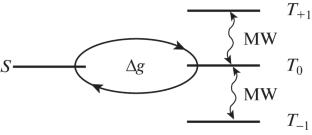自旋化学理论的现状:自旋化学范式
IF 0.48
Q4 Physics and Astronomy
Bulletin of the Russian Academy of Sciences: Physics
Pub Date : 2025-05-05
DOI:10.1134/S1062873824710055
引用次数: 0
摘要
简要评述了自旋化学理论中存在的问题。讨论了自旋化学成果的实际应用前景。结果表明,在化学动力学中,有必要考虑在基本化学反应过程中反应物的电子复数变化的可能性。本文章由计算机程序翻译,如有差异,请以英文原文为准。

Current State of the Theory of Spin Chemistry: The Spin Chemistry Paradigm
Current problems of the theory of spin chemistry are briefly reviewed. The prospects for practical applications of spin chemistry achievements are discussed. It is shown that in chemical kinetics, it is necessary to consider the possibility of changes in the electron multiplicity of reactants during elementary chemical acts.
求助全文
通过发布文献求助,成功后即可免费获取论文全文。
去求助
来源期刊

Bulletin of the Russian Academy of Sciences: Physics
Physics and Astronomy-Physics and Astronomy (all)
CiteScore
0.90
自引率
0.00%
发文量
251
期刊介绍:
Bulletin of the Russian Academy of Sciences: Physics is an international peer reviewed journal published with the participation of the Russian Academy of Sciences. It presents full-text articles (regular, letters to the editor, reviews) with the most recent results in miscellaneous fields of physics and astronomy: nuclear physics, cosmic rays, condensed matter physics, plasma physics, optics and photonics, nanotechnologies, solar and astrophysics, physical applications in material sciences, life sciences, etc. Bulletin of the Russian Academy of Sciences: Physics focuses on the most relevant multidisciplinary topics in natural sciences, both fundamental and applied. Manuscripts can be submitted in Russian and English languages and are subject to peer review. Accepted articles are usually combined in thematic issues on certain topics according to the journal editorial policy. Authors featured in the journal represent renowned scientific laboratories and institutes from different countries, including large international collaborations. There are globally recognized researchers among the authors: Nobel laureates and recipients of other awards, and members of national academies of sciences and international scientific societies.
 求助内容:
求助内容: 应助结果提醒方式:
应助结果提醒方式:


